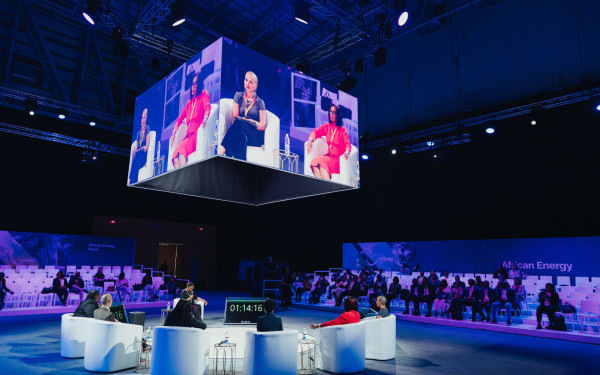
By Edson Baraukwa | Africa Guardian
A session hosted by the African Women Business Energy Network (AWBEN) during the Women in Energy Roundtable at African Energy Week (AEW): Invest in African Energies 2024 highlighted the critical role of mindset shifts and workplace flexibility in increasing and retaining women’s participation in Africa’s energy industry.
Uche Anajemba, Senior Manager of Business Partnering and Diversity Inclusion at Seplat Energy Plc., emphasized the need for change at the educational level. She advocated for curricula that address women’s needs, focusing on clean energy and the energy transition, while highlighting the importance of long-term societal impact. “Women are looking for flexible roles with a social impact. Curriculums should be designed to reflect the changing needs of the energy sector. This change can only be achieved through public-private partnerships, with companies like SLB, Eni, and Seplat partnering with educational institutions to provide women with hands-on industry experience,” said Anajemba. “By the end of their education, women will have a deeper understanding of the industry, which will help retain them in the workforce.”
Energy companies across the continent have been increasingly proactive in creating programs aimed at enhancing women’s participation in the sector. These initiatives focus on market entry, collaboration, and leadership development. SLB, for example, has been supporting women in STEM fields through fellowships since 2004. Sheri Adoghe, Production Systems Division Manager for West Africa at SLB, shared, “We’ve supported over 900 women globally, including 426 women across 41 African countries. These women return home and challenge existing policies, driving change in their regions.”
Angola’s National Oil, Gas & Biofuels Agency (ANPG) has also been promoting women’s involvement in the oil and gas sector through programs like the Muhatu Energy platform. Maura Nunes, Local Content Manager at ANPG, explained that the agency has established mentorship and internship programs to help women transition from education to the workforce, providing visibility and career opportunities.
In the nuclear energy sector, the World Nuclear Association is prioritizing inclusivity and innovation. King Lee, Head of Policy and Industry Engagement, emphasized that a shift in industry culture is essential, stating, “The future of the energy sector is not shaped solely by technology, but by people—innovation is key to making the industry more inclusive.”
While representation is essential, bp Southern Africa’s General Manager of Mobility & Convenience, Nokwanda Khumalo, pointed out that policies and legislation alone are not enough. “It’s about shifting the mindset and ensuring that legislation is practically implemented,” she said.
Eni’s Head of East Africa Upstream & Exploration Commercial Negotiations, Alba Oliveira, added that mentorship is vital in addressing the gender disparities still present in the industry. “Mentorship gives women a safe space to develop their leadership identity and establish themselves as integral members of the workforce,” she concluded.
These initiatives represent important steps toward ensuring that women’s contributions are recognized and that they have the support needed to thrive in Africa’s evolving energy sector.
___
